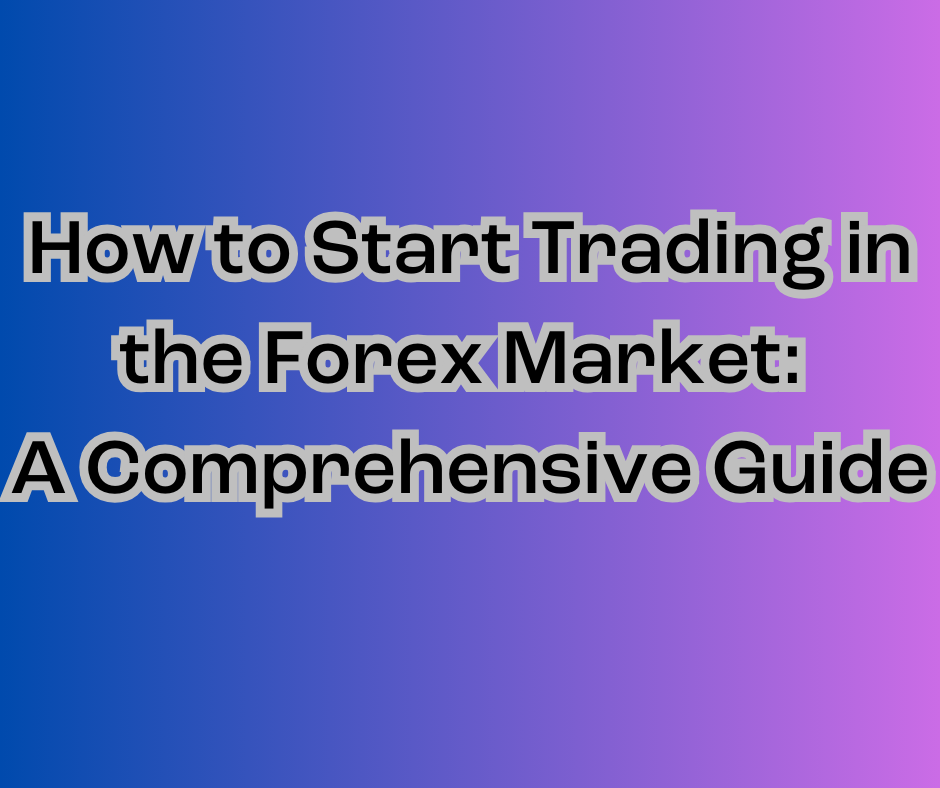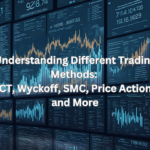How to Start Trading in the Forex Market: A Comprehensive Guide
Forex trading, also known as foreign exchange trading, is the act of buying and selling currencies in a global marketplace. With daily trading volumes exceeding $6 trillion, the forex market is the largest and most liquid financial market in the world. It offers vast opportunities, but also carries substantial risks, making it crucial for beginners to approach it with a solid foundation. This blog will walk you through everything you need to know to start trading in the forex market. https://one.exnesstrack.net/a/h8toasakge
1. Understanding the Basics of Forex Trading
Before you dive into trading, it’s important to grasp the basic concepts that underpin the forex market.
- What is Forex Trading?
Forex trading involves exchanging one currency for another. The goal is to make a profit by buying a currency at a lower price and selling it at a higher price, or vice versa. Unlike stocks, forex trading doesn’t take place on a centralized exchange. Instead, it’s conducted over-the-counter (OTC) through a network of banks, brokers, and financial institutions. https://one.exnesstrack.net/a/h8toasakge - Currency Pairs:
In forex trading, currencies are quoted in pairs, such as EUR/USD (Euro/US Dollar) or GBP/JPY (British Pound/Japanese Yen). The first currency in the pair is known as the base currency, and the second is the quote currency. The price of the currency pair indicates how much of the quote currency is needed to purchase one unit of the base currency. https://one.exnesstrack.net/a/h8toasakge - Leverage:
One of the unique aspects of forex trading is the use of leverage. Leverage allows you to control a large position with a relatively small amount of capital. For example, with a leverage ratio of 100:1, you can control $100,000 with just $1,000. While leverage can amplify profits, it also magnifies losses, making it a double-edged sword.
2. Learning Forex Terminology
To trade effectively, you need to familiarize yourself with the key terms used in the forex market:
- Pips:
A pip is the smallest price movement in a currency pair, typically the fourth decimal place (e.g., 0.0001). It’s a standard unit of measurement in forex trading. - Spread:
The spread is the difference between the bid price (the price at which you can sell a currency) and the ask price (the price at which you can buy a currency). A lower spread indicates a more favorable trading environment. - Margin:
Margin is the amount of money required to open a position. It acts as a good faith deposit, ensuring that you have sufficient funds to cover potential losses. - Lot Size:
Forex trades are typically conducted in lots. A standard lot is 100,000 units of the base currency, while a mini lot is 10,000 units, and a micro lot is 1,000 units. - https://one.exnesstrack.net/a/h8toasakge
3. Choosing a Reliable Forex Broker
Selecting the right broker is a critical step in your forex trading journey. Here’s what to consider:
- Regulation:
Ensure the broker is regulated by a reputable financial authority, such as the Financial Conduct Authority (FCA) in the UK, the Commodity Futures Trading Commission (CFTC) in the US, or the Securities and Exchange Board of India (SEBI) in India. Regulation provides a level of protection and ensures the broker adheres to industry standards. - Trading Platform:
A user-friendly trading platform is essential for executing trades and analyzing the market. Popular platforms include MetaTrader 4 (MT4) and MetaTrader 5 (MT5), which offer advanced charting tools, automated trading capabilities, and a range of technical indicators. - Fees:
Compare the spreads, commissions, and other fees charged by different brokers. Lower fees can significantly impact your profitability, especially if you trade frequently. - https://one.exnesstrack.net/a/h8toasakge
4. Developing a Trading Plan
A well-thought-out trading plan is your roadmap to success in the forex market. It should include the following elements:
- Goals:
Set clear, realistic goals for your trading. Are you aiming for steady income, capital growth, or learning and experience? Your goals will shape your trading approach. - Risk Management:
Decide how much risk you are willing to take on each trade. A common rule of thumb is to risk no more than 1-2% of your trading capital on a single trade. This helps protect your account from significant losses. - Trading Strategy:
Develop a strategy based on technical analysis (using charts, indicators, and patterns) or fundamental analysis (based on economic data, interest rates, and geopolitical events). For example, you might use moving averages to identify trends, or economic reports to predict currency movements. - https://one.exnesstrack.net/a/h8toasakge
5. Practicing with a Demo Account
Before risking real money, it’s wise to practice with a demo account. A demo account simulates live trading conditions, allowing you to test your strategies, familiarize yourself with the trading platform, and gain confidence without financial risk. Many brokers offer free demo accounts with virtual funds.
6. Starting with a Small Investment
When you’re ready to trade with real money, start with a small investment. This minimizes your risk while you gain experience in live market conditions. As you become more comfortable and consistent, you can gradually increase your position sizes.
7. Staying Informed
The forex market is influenced by a wide range of factors, including economic data, central bank policies, and geopolitical events. To make informed trading decisions, stay updated on market news and events:
- Market News:
Economic indicators, such as GDP, unemployment rates, and inflation, can impact currency values. Central bank decisions on interest rates also play a crucial role. - Analysis:
Regularly analyze the market using both technical and fundamental analysis. Technical analysis helps you identify trends and potential entry/exit points, while fundamental analysis provides insights into the underlying factors driving currency movements.
8. Keeping a Trading Journal
A trading journal is an invaluable tool for improving your trading performance. Record each trade you make, including the currency pair, entry and exit points, reasons for the trade, and the outcome. Reviewing your journal helps you identify patterns in your behavior, learn from mistakes, and refine your strategy.
9. Continuously Educating Yourself
Forex trading is a skill that takes time to master. The market is constantly evolving, and successful traders never stop learning. Invest in your education by reading books, taking online courses, and following experienced traders. Join trading communities and forums to exchange ideas and stay updated on market trends.
10. Being Patient and Disciplined
Patience and discipline are key traits of successful forex traders. Avoid the temptation to chase quick profits or deviate from your trading plan. Instead, focus on consistent, well-planned trades. Accept that losses are part of trading and learn from them without letting emotions drive your decisions.
Example of a Simple Forex Trading Strategy
To give you a practical example, here’s a basic strategy that beginners can use:
- Identify a Trend:
Use a moving average (e.g., 50-period moving average) to determine the direction of the trend. - Set Entry Point:
Enter the trade when the price retraces to the moving average in the direction of the trend. For example, if the trend is upward, wait for the price to dip towards the moving average before buying. - Set Stop Loss:
Place a stop loss below the moving average to limit potential losses. This ensures that if the market moves against you, your loss is minimized. - Set Take Profit:
Set a take profit target based on recent price movements. This could be a previous high or a specific number of pips.
Conclusion
Starting to trade in the forex market is a journey that requires preparation, practice, and persistence. By understanding the basics, choosing the right broker, developing a solid trading plan, and continuously educating yourself, you can build a strong foundation for success. Remember to start small, stay disciplined, and keep your emotions in check. With time and experience, you can navigate the complexities of the forex market and achieve your trading goals.







